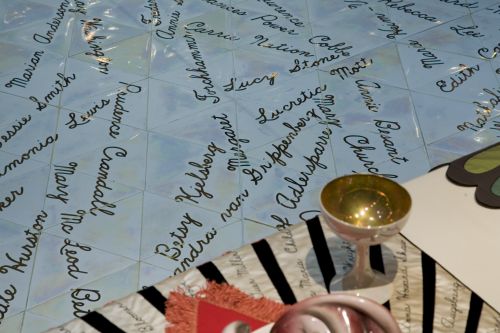Lucretia Marinelli
b. 1571, Venice; d. 1653, Venice
In 1599, Giuseppe Passi published I donneschi difetti (Women’s Defects), citing ancient writers and religious authorities to demonstrate women’s miserable nature. Passi’s misogynist diatribe provoked an immediate response from the young Venetian writer Lucrezia Marinellli (Marinella), already known for her epic poetry on mythological and religious subjects. Marinelli turned the tables on Passi & Company with a blistering denunciation of male imperfections and a compelling argument for female superiority. La nobilità e l’eccellenza delle donne co’diffetti et mancamenti de gli huomini (The Nobility and Excellence of Women and the Defects of Men, 1600) is not a plea for gender equality but, rather, a polemical valorization of women’s virtues. Marinelli envisions a feminized world in which those virtues—compassion, cooperation, egalitarianism—would reign, a world infinitely preferable to the hierarchically organized male order that prevailed.

Related Place Setting
Related Heritage Floor Entries
- Maria Agnesi
- Marianna Alcoforado
- Anna Amalia
- Anne Askew
- Mary Astell
- Laura Bassi
- Anne Baynard
- Aphra Behn
- Helen Cornaro
- Isabela Czartoryska
- Anne Dacier
- Maria de Agreda
- Luisa de Carvajal
- Marie le Jars de Gournay
- Bernarda de la Cerda
- Marie de Miramion
- Luise Gottsched
- Jeanne Marie Guyon
- Susanna Lorantffy
- Bathsua Makin
- Charitas Pirckheimer
- Bridget Tott
- Barbara Uttman
- Glueckel von Hameln
- Hortensia von Moos
- Maria Antonia Walpurgis
- Hannah Woolley